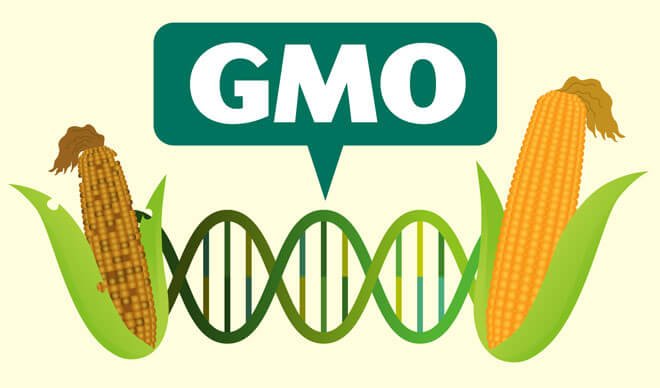GMOs Not the Silver Bullet to Ghana’s Food Security: Open Letter to MESTI (Sequel I)
A question has followed me from my undergraduate studies at the University of Cape Coast to this very day: Are Genetically Modified Organisms (GMOs) good for us? This question was first posed in my Advanced Biotechnology class by my lecturer, Professor Nelson Buah. It was a relevant question then, and it is profoundly more so now. For these writeups, GMOs refer to transgenic crops.
In recent weeks, I have engaged in debates on X (formerly Twitter) with proponents of GMOs. As a trained plant breeder, I feel a professional and civic duty to share my perspective. Advocates for GMOs argue that modern challenges require modern solutions, hailing genetic modification as a precise and efficient tool. However, it must be stated clearly: for Ghana and for Africa, the disadvantages of GMOs far exceed any purported benefits. Proponents claim GMOs are “precise” because a desired trait from one organism can be isolated and inserted into the genome of a plant. They are deemed “efficient” because this process can shorten the conventional breeding cycle, theoretically saving resources.
This narrative, however, conveniently ignores the significant downsides. The widespread adoption of GMOs threatens our biodiversity, raises questions about long-term sustainability, and—most critically—will decimate our food sovereignty. GMOs are not being presented as a choice for the Ghanaian consumer; they are being forced upon us as the only option. Furthermore, with their long-term health implications still debated and their primary function being profit generation for multinational corporations, we must proceed with extreme caution. In my subsequent writing, I will further detail these disadvantages and highlight the “low-hanging fruit”—the practical, sustainable solutions we should be pursuing to achieve genuine food security.
The Real Problem vs. The Wrong Solution
To genuinely address the challenges confronting our agricultural sector, we must first correctly identify the problems. According to the Ministry of Food and Agriculture (MoFA), the single greatest threat to Ghana’s food security is post-harvest losses. These losses are driven by foundational, infrastructural failures:
- Poor road networks
- Inadequate transportation
- Lack of proper storage infrastructure
Other contributing factors include a lack of credit facilities and farm mechanization, the prevalence of small-scale farming, pests and diseases, and an over-reliance on rain-fed agriculture.
Given this reality, which of these challenges must be tackled with urgency? And should GMOs be our first line of defence? It is baffling that, despite clear data on our primary challenges, Ghana is pursuing a disjointed solution—one that has little bearing on the problem at hand and serves primarily to advance the commercial interests of multinational companies.
A Disconnect in Policy and Practice
The recent course of events provides stark evidence of this disconnect. In 2022, in the midst of a legal battle between Food Sovereignty Ghana (FSG) and the National Biosafety Authority (NBA), the latter authorized the commercial release of GM cowpea. More recently, on April 14, 2024, Graphic Online reported that 14 new GMOs—eight maize and six soybean varieties—have been approved for the Ghanaian market.
The details of this approval are revealing. Of the 14 products, 13 are owned by Bayer (which acquired Monsanto) and one by Syngenta. Not a single Ghanaian company or research institution is involved, for the simple reason that we lack the capacity for this proprietary technology. Even more telling are the traits these GMOs possess: insect resistance, drought tolerance, herbicide resistance (specifically to glyphosate and dicamba), and improved nutritional content.
None of these traits directly addresses the critical issue of post-harvest loss. Let us ask a practical question: if a farmer harvests this new insect-resistant maize, but it cannot be transported to the consumer on time due to impassable roads, what happens to it? It will rot, just like any other variety. Furthermore, are these traits not achievable through conventional breeding, augmented by non-controversial biotechnology tools like marker-assisted breeding?
Nearly three years after the initial authorization of GM crops, where is the evidence that Ghana has attained, or is even approaching, food security because of their introduction? The results—or lack thereof—speak for themselves.
The Irreversible Threat to Biodiversity and Farmer Sovereignty
Perhaps the most alarming danger of widespread GMO adoption is the irreversible threat to our nation’s biodiversity and the sovereignty of our farmers.
To prevent genetic contamination, international best practices require a significant isolation distance around GMO fields. For a cross-pollinated crop like maize, this distance can be up to 400 meters. How many smallholder farmers in Ghana, with our complex land tenure system, can realistically enforce such a buffer?
The consequences of failing to do so are dire. Because patented GMO seeds often carry dominant traits, cross-pollination will transfer these genes to local varieties. Over time, this genetic contamination erodes the integrity of our native landraces. Farmers who once saved their own seeds will find their traditional varieties altered, forcing them to become dependent on multinational corporations for new seeds each season. This isn’t just about biology; it is about the systematic destruction of our farmers’ seed sovereignty. This is precisely why Mexico, the ancestral home of maize, banned GM maize—to protect its native varieties and their wild relative, teosinte.
Beyond genetic contamination, there are the unintended ecological casualties. Insect-resistant crops that produce their own pesticide (like Bt maize) can harm non target organisms, including beneficial insects and essential soil microorganisms. By disrupting the delicate trophic structure within our soil, we risk degrading its fertility, disrupting nutrient cycles, and ultimately undermining the very foundation of our long-term productivity and food security.
The writer is the Agricultural Programmes Lead at Koa Impact Ghana Ltd. Email: emmanueloampomah@gmail.com
by Emmanuel Owusu Ampomah














